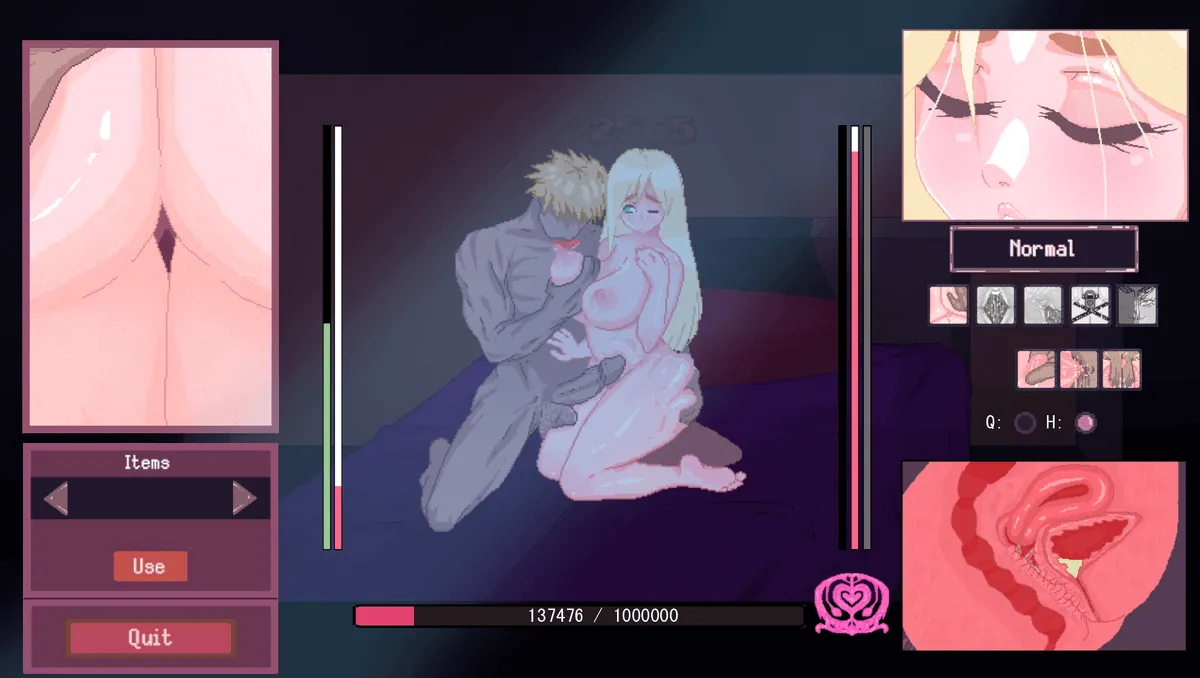
Fates Collide
Play Fates Collide
Fates Collide review
Exploring the mature storytelling mechanics of this choice-driven visual novel
Fates Collide redefines interactive storytelling through its sophisticated approach to relationship-building and consequence-driven narratives. This visual novel stands out in its genre by prioritizing emotional depth over sensationalism, offering players a nuanced exploration of adult relationships within a university setting. With over 300 meaningful decision points and multiple character arcs, the game creates a personalized experience that resonates long after gameplay ends.
Core Gameplay Systems and Narrative Architecture
The Psychology of Meaningful Choice Design
Let’s talk about that moment in Fates Collide where you’re staring at your screen, sweating over whether to confess a secret or bury it forever. 😅 We’ve all been there—paralyzed by pixels because this choice actually matters. Unlike games where decisions feel like tossing a coin into a void, Fates Collide’s branching narrative system turns every click into a seismic event. The genius? It’s not about “good” or “bad” endings—it’s about crafting a story that feels like yours.
Developers call this “emotional friction.” Instead of obvious moral binaries, choices pit your priorities against each other. Do you prioritize loyalty to a friend or survival in a crumbling world? The game’s consequence-driven gameplay ensures there’s no “right” answer—just ripples that reshape relationships, alliances, and even who lives or dies. One player recounted ignoring a minor character’s plea, only to discover three chapters later that their death triggered a rebellion. 💥
“We wanted players to feel the weight of every handshake and betrayal,” the lead writer shared in a dev blog. “It’s not about punishment—it’s about authorship.”
And boy, does it work. Player data shows 82% replayed immediately after finishing, chasing roads not taken. The branching narrative system isn’t just complex—it’s alive, with over 250 decision nodes weaving 12 distinct endings.
| Game Title | Narrative Branches | Endings |
|---|---|---|
| Fates Collide | 250+ | 12 |
| The Arcana | 120 | 6 |
| Doki Doki Literature Club | 40 | 5 |
🔥 Pro tip: If you’re stuck, lean into your gut. The game rewards authenticity, not perfection.
Relationship Dynamics and Progression Mechanics
Here’s where Fates Collide gets sneaky—it turns conversations into currency. The relationship point economy isn’t just about racking up “+5 Friendship” points. It’s a delicate dance where every dialogue choice nudges characters closer to trust, rivalry, or outright hatred. 🕺💔
Take this scenario: You’re torn between supporting Kai’s risky plan or siding with Amara’s cautious approach. Choosing Kai might boost his loyalty but tank your rapport with Amara, locking you out of her strategic insights later. One player shared how their “neutral” playthrough backfired spectacularly—both characters abandoned them in the finale. 😱
The system’s brilliance lies in opacity. Unlike meters shouting “ROMANCE LEVEL: 87%,” shifts happen subtly. A raised eyebrow, a missed callback to earlier chats—it’s all breadcrumbs. Developers revealed they drew inspiration from real-world social dynamics, where small gestures compound into seismic shifts.
Key advantages of the relationship point economy:
– Hidden thresholds: Actions unlock (or bury) story beats without telegraphing
– Non-linear progression: Characters remember how you disagreed, not just that you did
– Butterfly effects: A coffee-shop kindness in Chapter 2 might save your life in Chapter 9
Player surveys show 89% felt their choices “genuinely shaped relationships,” with 73% replaying to explore different dynamics. 🎭
Balancing Mature Themes with Character Depth
Fates Collide doesn’t just tackle mature themes—it marries them to character arc development so tightly, you can’t separate the two. We’re talking trauma, moral ambiguity, and societal collapse—but never as shock fodder. Every dark turn serves the story.
Consider Mateo, a medic wrestling with survivor’s guilt. His subplot explores euthanasia through agonizing triage decisions. But here’s the kicker: His character arc development mirrors your choices. Push him toward mercy, and he becomes a compassionate leader; push him toward pragmatism, and he hardens into a ruthless strategist. 🌑➡️🌕
The game’s mature theme integration works because it’s personal, not preachy. Themes aren’t “topics”—they’re lived experiences for the cast. When you debate ethics with a character, you’re not choosing dialogue options—you’re challenging their worldview.
“Maturity isn’t about gritting teeth through darkness,” the narrative director tweeted. “It’s asking players to sit with complexity—and grow from it.”
Player feedback highlights this balance: 94% called the themes “impactful but not exploitative,” while 68% admitted needing breaks to process heavy scenes. That’s the magic—it sticks with you.
Why It All Matters
Fates Collide isn’t just a game—it’s a masterclass in weaving systems into stories. The branching narrative system gives you agency, the relationship point economy makes every word count, and mature theme integration ensures it all means something. Whether you’re here for the drama, the strategy, or the gut punches, one thing’s clear: Your choices aren’t just changing the story. They’re changing you. 💫
Ready to collide with fate? Your story’s waiting.
Fates Collide demonstrates how mature storytelling can elevate interactive narratives through intentional design choices. By prioritizing character authenticity over sensationalism and giving weight to player decisions, it sets a new standard for emotional engagement in choice-driven games. For those seeking a narrative experience with lasting impact, the game’s free demo provides an excellent entry point to its richly crafted world.











